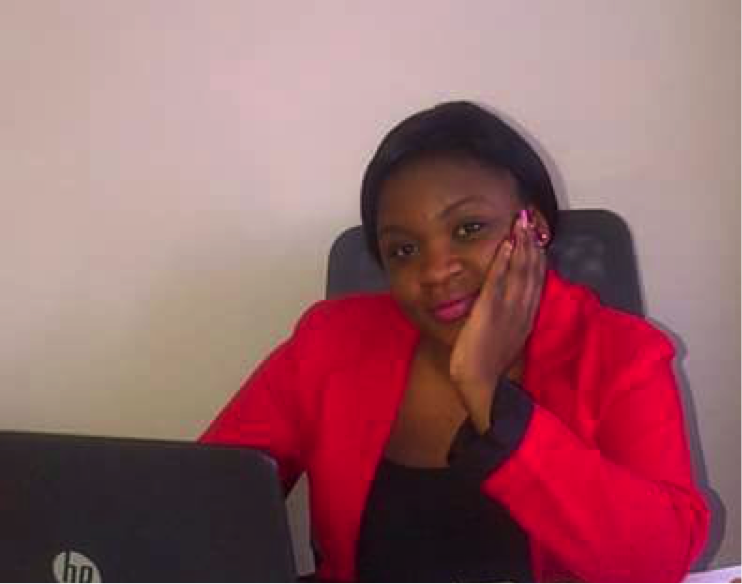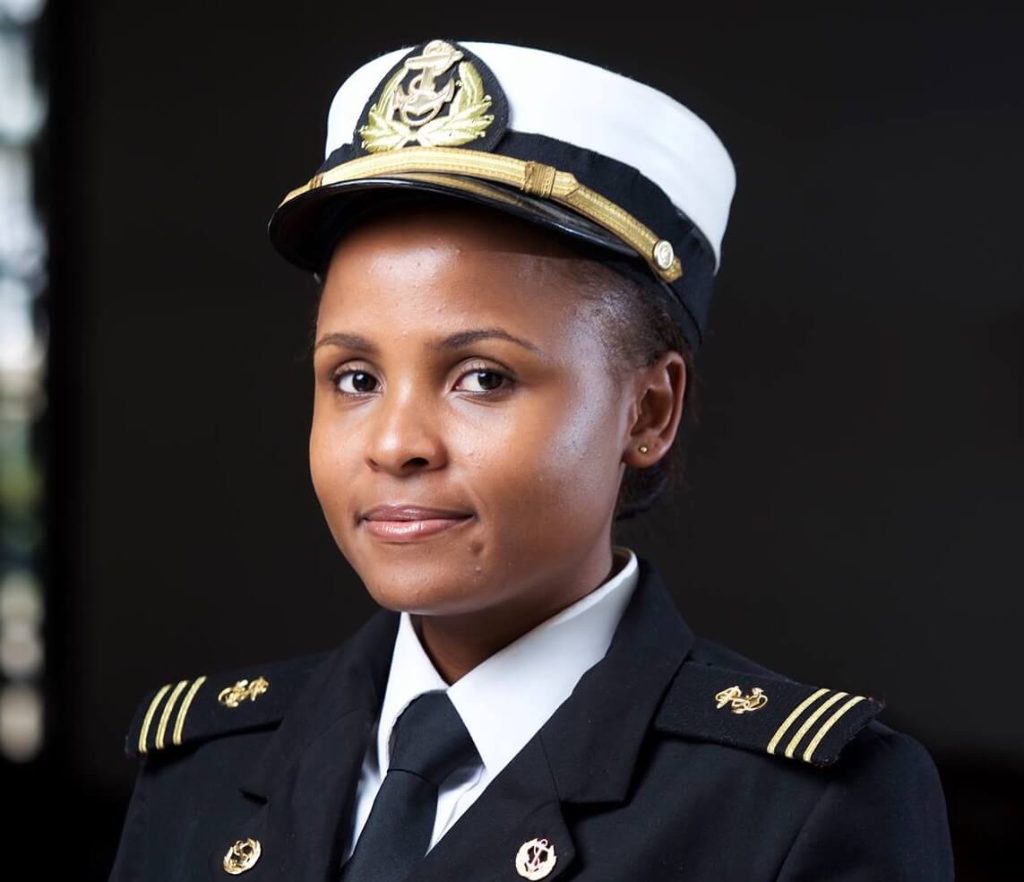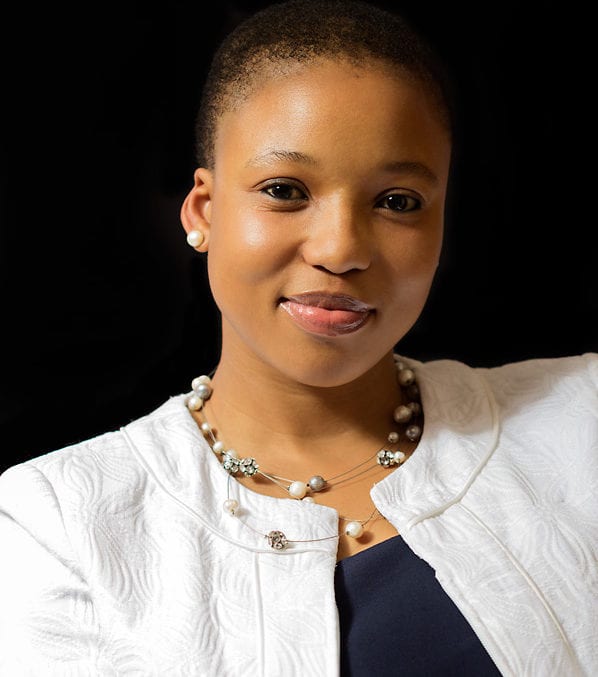Samantha Chovuchovu: Logistics is not just a man’s career

[bctt tweet=”Samantha Chovuchovu shares her experiences as woman dominating in the logistics sector” username=”SheLeadsAfrica”] Addressing the stereotype that the logistics or transport industry is a career option for a very specific gender is a challenge. The most common managerial positions undertaken by women are in secretarial, communications and human resources. What’s worse is that the industry’s positioning in the manufacturing sector unfortunately, means that very few women are employed in or run businesses. It’s been for ages considered a male-dominated field, but women have developed a significant presence in the industry workforce. From railways to roads, urban transport to civil aviation and as seafarers and dockers, women are working as drivers, conductors, pilots, mechanics and officers, as well as in administrative roles. Samantha Chovuchovu, started her own logistics company and here she shares her experiences as woman dominating in the sector. Why did you choose logistics? Logistics is an industry that continues to grow, be it on the local, national or global scale. It links me to different people. I saw this as an opportunity to grow my network and get exposure to people in different businesses, which made good business sense. Funny enough, growing up I always wanted to do law (which I’m still studying by the way) but I had a vision to run my own business one day. What does one require for such a start-up? First things first, a business plan and the ability to identify your target market. Then obviously, capital to get up and running. Once capital is established you need to source reliable suppliers and manpower. [bctt tweet=”Samantha Chovuchovu: Logistics continues to grow, be it on the local, national or global scale” username=”SheLeadsAfrica”] What common challenges come with this business? Running a logistics company can be very demanding, yet it offers a rewarding work environment. Suppliers can be unreliable and the main issue is that the business has a lot of risk factors involved. To be prepared for this one needs to be insured to cover any accidents. How do you handle competition from the male competitors? Competitors are everywhere. Being a woman in logistics has never been an issue to me. What’s more important is the role that I have to play and making sure the job gets done. I am aware of competitors out there but I consider them more of an encouragement than a challenge to me. [bctt tweet=”Samantha Chovuchovu: Running a logistics company can be very demanding, yet it is rewarding” username=”SheLeadsAfrica”] Going forward, what are your career prospects? There are a lot of opportunities in logistics apart from just transporting goods. Operations, purchasing warehousing material handling and inventory control all fall under the umbrella. I would love to seize and take advantage of all these. Any recommendations or advice to young women considering logistics business? I recommend that young women should seriously consider a career in logistics. As globalization moves forward, manufacturing and consumer behaviour will be influenced more and more by global and local markets. Hence, there’s a growing need for logistics services in the supply chain. It is not easy, but one just needs to be very diligent and it will surely pay off. Would you be in a position to mentor other women and/or offer internships to help them get ahead? Sure, I am. Mail me visit our webpage or contact me via email. Want to see women you know featured on SLA? Tell us what amazing things women are doing in your communities here.
Taking command: Meet Kenya’s first female marine pilot, Elizabeth Marami

At only 27 years, Elizabeth Marami is charting the path less travelled and breaking gender barriers that have been in place for so long. Her courage would see her swim away from the waters of comfort to take up a comprehensive and challenging course in navigation and become a marine pilot. Intimidating and authoritative would be the ideal requirements for her job. However, Elizabeth has a warm personality, petite physique and is soft spoken for a person whose main duty is to take ‘command’. You have the name pilot in your job title, does that scare you? I do not often introduce myself as a marine pilot. It was just recently that I just found myself doing so. I believe it must have leaned more into the fact that I was talking to someone who inspires me and made me feel comfortable saying it. I am just Liz. What influenced your choice of career? I didn’t want to be ordinary. I wanted to pursue something that would challenge me. So when I heard about a scholarship, I could not resist the temptation to apply. The scholarship would have me leave Kenya for Alexandria, Egypt to study navigation. The selection process was very competitive and I couldn’t believe it when I was awarded. I had another offer to study law at the University of Nairobi but my mind was set on navigation. What comprises navigation studies? The degree course takes 5 years. On completion you get certification from a UN body, the International Maritime Organization (IMO). There is also a mandatory requirement of 18 months of sea time for every rise in rank and additional channel training at Kenya Ports Authority (KPA). I’m currently at second officer level. When I joined the training I was one of 2 female students, the rest were men. The training is very extensive with classes running late into the evening. I never had a typical college life of fun and socializing. You are now a marine pilot; describe a typical work day in your life I am a second officer in command. Foreign ships coming to the Kenyan territorial waters are not allowed to navigate on their own and have to have a Kenyan pilot meet them and help navigate. By doing that, you are taking ‘command’. I understand you are the only woman in your workplace. What are the dynamics? Do you prefer working with men as opposed to women? Our workplace is predominantly male. Small things such as bathrooms —where we have separate bathrooms for the male staff and the rest for general public— goes to show the gender disparity that is in the maritime industry. Yet the real struggle is not about the bathrooms but so many other key policies that keep away women from the sea. There is gender imbalance in staffing and training. Consider that women in the maritime industry account for only one or two per cent of the world’s 1.25 million seafarers, according to the International Labour Organisation. The men I work with are great; they encourage me and push me towards achieving my goals. Actually, working with men has helped me understand women better. The men in my workplace affirm, encourage me to be more assertive and don’t compete against me. This has helped me look at women not as competition, but team players in the same frontier. If you weren’t a marine pilot, what would you be doing? I would be working in the fashion industry. I would want to build an international brand that showcases African fabric and authentic designs. Tell me about your blog? Is it an escape from the unwavering tide in your career? I have always loved writing and fashion. Running my blog keeps me normal. I get to wear beautiful pieces and get photographed —which is a world away from my job. Sometimes I wish I could run this blog anonymously and that way I would be able to write about the deep-rooted issues of my life. You wrote extensively about rejection on your blog. Would you comment on that? We were 9 students who were awarded the same scholarship, 8 are male and 1 is female. Part of our course requirements is practical skills in form of 18 months of sea time. All the men in our class have successfully secured sea time on board ships since been offered the opportunity. I have been rejected by various companies in my quest to meet the board requirements for 18 months of sea time so that I can graduate to a captain, 1st in command. My applications often come back with rejections based on my gender which can be very frustrating. Companies are afraid of getting into sexual harassment (legal) suits so they prefer not to hire women. The blog gives me an off-my-chest platform where I can share my frustrations. I have however learnt to be patient. Good things come to those who wait. What does your family feel about your career choice? My family is very understanding. They have been very supportive. It’s only when I started my initiative, ‘Against the Tide’ that my dad became a little concerned. Be on the lookout for the official launch of this initiative. Tell me more about the initiative Against the Tide is my own initiative to see a reasonable gender balance in the maritime industry. Although in its infancy, I want to advocate for policies that favour both genders and allows for equal opportunities in access to opportunities in the industry. I also intend to mentor young girls into believing in themselves and having the courage to get into the profession. I have been speaking to students at various schools about the importance of believing in themselves. You met the President, His Excellency Uhuru Kenyatta. How was it like? The most impressive thing about meeting the president the second time was that he remembered me from the first time we met. On this instance, he commended me on our work before
Twitter Chat with Olebogeng Sentsho: The importance of women owned businesses in male-dominated industries (Oct. 20)

Women have been making their way through traditional male professions for a while now. The latest industry to be tackled by women is mining. How is this move affecting the industry and the pioneering women that have decided to take it on? Join us Thursday Oct. 20th for a twitter chat with Olebogeng Sentsho, founder of Yeabo Mining, a 100% black-woman owned business that focuses on waste management in the mines and also offers administrative and financial services related to mining. If you’re a woman looking to break into a male-dominated industry, a swag-assisting man knowing how to support women in these initiatives or just curious about boss women in South Africa, then you should definitely be a part of the chat. Follow She Leads Africa on twitter and use the hashtag #SheHiveJoburg to ask your questions and participate in the discussion. Topics that we’ll cover: Why male-dominated industries need more women The perks and set-backs of an all women owned business Challenges of being the only woman in the room How to reduce gender imbalances in more industries Advice to women trying to break into the industry, and men who want to help them Twitter chat details Date: Thursday Oct. 20, 2016 Time: 8am NYC // 1pm Lagos // 2pm Joburg Location: Follow She Leads Africa on twitter and use the hashtag #SheHiveJoburg About Olebogeng Sentsho Olebogeng Sentsho is a serial entrepreneur with interests in mining. She is currently the Founder and Head of Operations at Yeabo Mining, a strategic waste management company with plants in and around Limpopo. Olebogeng studied law at the University of the Witwatersrand and is currently pursuing her Masters degree in Business Administration. Mrs Sentsho is also the Founding Chief Executive officer of the newly founded Mining Innovation Initiative of South Africa: a non-profit organisation of businesses and individuals in mining and mining services. MIISA works to promote, enhance, innovate and improve the mining climate in South Africa by catalysing innovation and promoting thought leadership and mining development to the general public, protecting the rights of mining businesses, and assisting these businesses to improve their sales and profits while actively enhancing their contribution to the communities in which they exist. A recipient of the inaugural “Outstanding woman in Mining Award” at the Youth in Mining Business awards, The Head of the Mining and Technical Engineering Services Sector at the Progressive Youth in Business Organisation and a panelist at the recently held “Youth in Mining Procurement Transformation Summit”, Olebogeng is passionate about investment, the African economy, mining and socially responsible business practices. She believes that a more structured and Afro-centric approach to mining will grow the African economy and enable Africa to benefit from the minerals it rightfully owns. Olebogeng believes in the dawn of Africa’s secondary economy driven by industry and the green economy.”
